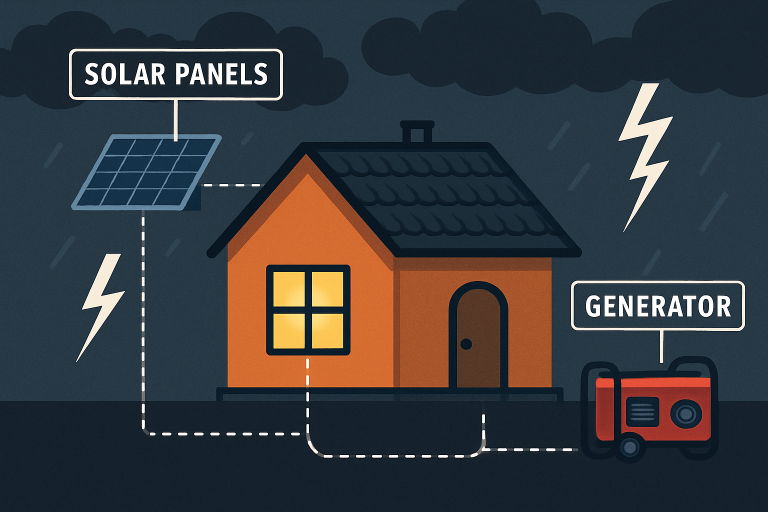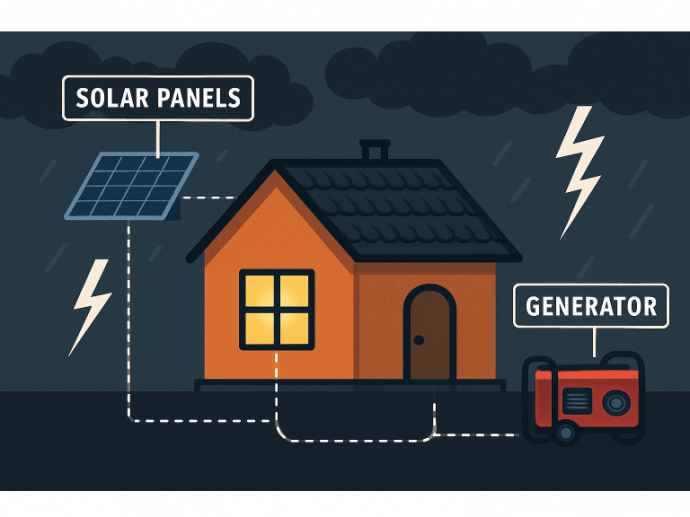Understanding the Importance of Backup Power
Power interruptions are more than just inconvenient—they can pose real risks to safety, comfort, and business productivity. From residential homes facing spoiled food and loss of heating or cooling, to businesses threatened with financial losses and operational downtime, the consequences of power outages can be severe. Reliable backup power solutions serve as a crucial lifeline, providing electricity when the grid goes down and allowing daily routines and business operations to continue seamlessly. If you’re considering an upgrade or preparing for hurricane season, exploring home generator installation in Sarasota is wise to protect your property and peace of mind.
Backup power systems come in various forms and sizes to suit distinctive residential, commercial, or industrial needs. Modern options are robust and can be integrated with technologies for increased efficiency and sustainability. Investing in such systems ensures that everything from lighting and security to essential medical or IT equipment continues functioning, regardless of how long the primary grid remains offline.
Types of Backup Power Solutions
The market offers several backup power solutions, each with unique advantages. It’s essential to understand the core types to select what best fits your requirements:
- Generators: Traditional fuel-driven generators are among the most common backup power solutions. Depending on fuel supply and generator capacity, they can supply immediate electricity for hours or days at a time. However, they require regular upkeep and a steady reserve of fuel, such as propane, diesel, or gasoline.
- Battery Storage Systems: Battery solutions are increasingly popular. They provide silent, maintenance-light power reserves that can be charged from the grid or renewable sources. These systems expand the resilience of residential or commercial premises by bridging gaps during brief outages or powering critical systems in extended ones.
- Uninterruptible Power Supplies (UPS): UPS units are essential for protecting sensitive electronics and IT infrastructure. They deliver instantaneous, short-term power that allows safe shutdowns and avoids data loss or hardware damage. According to the ENERGY STAR program, energy-efficient UPS systems can reduce energy waste by up to 52% compared to conventional models.
Benefits of Implementing Backup Power
Establishing a dependable backup power solution secures your household or business in several ways:
- Operational Continuity: An effective backup system keeps essential services—like HVAC, refrigeration, lighting, and communications—operational throughout a grid failure. Such continuity is vital for businesses that rely on time-sensitive data or perishable goods.
- Financial Protection: Power outages often come with hidden costs, including lost revenue, spoiled inventory, and equipment damage. A proactive investment in backup power helps diminish these risks, ensuring smoother recovery and ongoing productivity.
- Safety and Comfort: Continuity of lighting, HVAC, and crucial appliances ensures your home or office remains a safe and comfortable environment. For households with vulnerable residents or businesses housing temperature-sensitive assets, backup power is not just convenient but essential.
Integrating Renewable Energy with Backup Systems
Combining backup power installations with renewable energy, such as solar panels, leads to a more resilient and sustainable power infrastructure. Solar-plus-storage solutions let property owners reduce their reliance on fossil fuels, lower energy costs and ensure backup power is available during prolonged outages. This integration is good for emergency preparedness, boosts overall property value, and reduces environmental impact. Energy-efficient home upgrades can lead to significant cost savings and improved comfort.

Choosing the Right Backup Power Solution
Every property has distinct needs. When selecting a backup system, consider your overall energy consumption, budget, types of appliances or equipment needing protection, and long-term sustainability goals. Professional guidance ensures you’ll make an informed choice, especially in climates or regions with frequent hurricane or storm activity. Experts can assess property load requirements and offer customized recommendations for optimal generator size, installation location, and system features. Proper planning isn’t just about purchasing equipment—it’s about aligning your resilience strategy with your property’s layout and your family or business priorities, ensuring efficient, reliable service when needed most.
Maintenance and Testing of Backup Systems
Regular upkeep is essential to guarantee that your backup power system will work when it’s needed. This includes scheduled inspections, periodically running equipment under load, and maintaining fuel and battery levels according to manufacturer specifications. Ignoring maintenance can result in system failure at the worst possible moment. In addition, proactive testing will reveal issues in advance, allowing timely repairs and replacements. Maintenance is a recurring priority: mark calendar reminders, follow manufacturer checklists, and, if possible, enlist professional service contracts for routine care. This approach safeguards your investment and assures reliable service in emergencies.
Conclusion
Backup power solutions are a key investment for anyone seeking to secure safety, comfort, and business continuity amid increasingly common power outages. By understanding the options available—generators, battery systems, and renewables—property owners can choose the right system to fit their specific needs. Regular maintenance ensures peace of mind, while smart integration with renewables boosts resilience and sustainability. Plan proactively and consider home generator installation to keep your lights on and your life running smoothly, no matter what the weather brings.















